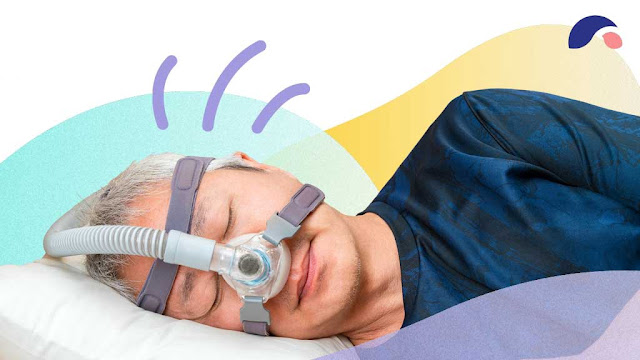So you or a family member is diagnosed with Obtrusive Sleep Apnea and you are worried that you or they would have problems breathing while you or they slept.
Why worry when there are CPAP machines to help alleviate such problems. Goodbye sleep disorder, hello sleep and rest.
Sleep Disorders and Your Well-being
Sleep disorders such as Obstructive Sleep Apnea are identified as pauses in breathing during a person’s sleep cycle.
Each episode, an apnea, normally lasts long enough, around at least 10 seconds, that one or more breaths are missed and this happens oftentimes throughout the person’s entire sleep cycle.
That is manifested in the form of fatigue and daytime sleepiness, of course taking into account that the higher the degree of sleep disturbance, the more prone the patient is to fatigue and daytime drowsiness.
Your optimal physical well-being depends on whether or not you get treatment through the use of CPAP machines. Before buying one, please consult your physician.
CPAP machines for Sleep Apnea: Fact or Fiction?
You probably wonder what the acronym CPAP stands for. CPAP (Continuous Positive Airway Pressure) machines are artificial ventilation equipment used in the hospital setting mainly as a form of breathing apparatus for patients in the Intensive Care Unit (ICU), or those who are suffering from respiratory-related sleep disorders.
These CPAP masks are also used to help patients suffering from Type 1 or 2 respiratory failure.
In a lot of countries, CPAP machines are only available through your doctor’s prescription or at a hospital. But due to the increase of people suffering from Sleep apnea, manufacturers have created CPAP masks in different shapes and sizes, varying in model and design.
These machines are also available by renting or buying them. However, as mentioned above, please consult your doctor first before buying any of this equipment.
The don’ts of CPAP care and safety
Don’t check your CPAP at the airport
A CPAP machine isn’t secure in a checked bag. It could become stolen, lost, or damaged. The airlines request that CPAP users carry on their machines; they won’t count them as a carry-on because CPAP qualifies as a medical device.
Don’t share your CPAP therapy with someone else
Sharing medical devices is unsanitary. Your pressurized air setting may be too much or too little for someone else, besides. For the same reason, you should never use someone else’s CPAP.
Don’t put your CPAP mask on your pet’s face
Animals carry a host of other germs in their mouths that can make your equipment a breeding ground for infection. They won’t like it, besides.
Don’t let your humidifier run dry
The heating element that keeps your humidifier warm may become too hot if it’s left to run dry. This can lead to scorching of the furniture where your machine sits or overheating of the machine itself, both leading to a risk for fire.
If you don’t like using the humidifier, you can usually turn off this feature. If you don’t know how to turn it off, consult your user’s manual or call your sleep specialist.
Don’t try to fix broken CPAP accessories
Put away the duct tape! It may work for a temporary fix, but for your safety and get the best possible therapy, you should replace all items that have torn, cracked, split, stretched out, or leaked.
Don’t buy your CPAP from a yard sale or a noncertified online seller
A used machine at a garage sale could be broken, set at the wrong pressure, or contaminated. If you pick up a used machine online, it must come from a certified seller who does professional refurbishing.
You’ll know they’re legitimate because they’ll ask you for a doctor’s prescription — in fact, they’ll require it — so they can set your machine for you. All others aren’t likely reliable sellers, nor are they operating legally.
Don’t ignore your sleep clinic’s phone calls
If your sleep specialist calls or messages you, there are good reasons for it. They might be:
- Delivering news of an equipment recall
- Receiving corrupted or unusual data on their downloads
- Checking on your progress if they notice you haven’t used your CPAP
- Following up on a previous communication you had with them
Communication with your sleep clinic is a big part of any CPAP success story. They’re there to help you.
Don’t give up too soon
Some people take longer than others to adjust to using CPAP, but once they do, they’re in it for life with no regrets. Sleep apnea is a lifetime diagnosis, and it requires a lifetime of treatment. If you adjust quickly, that’s great!
If you don’t, just keep trying, and ask for help from your sleep specialist if the going gets tough!
CAUTION: Now I need you to pay very close attention to this
Stop Snoring in 3 Minutes — Starting Tonight
The Stop Snoring and Sleep Apnea Program is a series of throat exercises designed to eliminate snoring and sleep apnea.
According to the Blue Heron Health News official site, what makes The Stop Snoring and Sleep Apnea Program a unique program is that it combines up to 24 unique but simple exercises to ensure one heals their snoring and sleep apnea problems.
The site further claims that by identifying the five existing types of snoring and carefully crafting the necessary solution to each root cause, using the program ensures that one will be healed.
The best part about the program is that one doesn’t have to strain themselves with strenuous exercise, expensive tools, and drugs, or even, really use their voice. With the simple 3-to-5-minute exercises, they can regain back control of their sleep.
To learn more and test-drive the easy snoring and sleep apnea exercises for yourself, click here…




